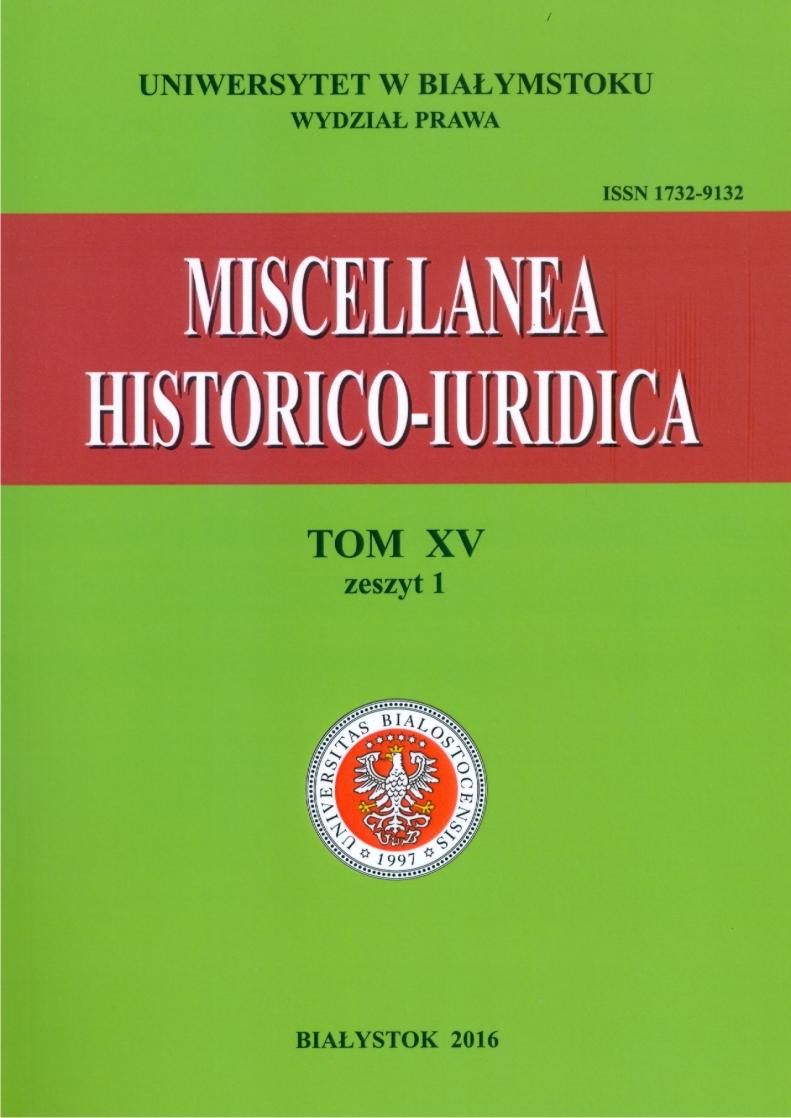Law, history and collective memory. References to the past in the preambles to the Constitution of Latvia and Hungary in comparison with other post-communist countries
Keywords:
legal petrification of the past, history after democratic transition, Central and Eastern European constitutions, collective memory after the communismAbstract
The main task of the text is a comparative presentation of the legal methods for the petrification of the historical narrations after the collapse of communism in central and eastern Europe. The purpose is mainly to show how M. Halbwachs concepts of collective memories creation are in use in the preambles to Latvia and Hungarian constitutions. These two acts are presented in comparison to constitutional acts from some other post-communist states from the region such as Poland, the Czech Republic, Slovakia and Lithuania. Another important problem is related to the question of why in fact states are deciding to use such a tool inside their constitutions.
References
Cyuńczyk F., Dylematy wokół zagadnienia rządów prawa w potranzycyjnej Czechosłowacji (Rep. Czeskiej) i na Węgrzech – analiza przypadków, „Miscellanea Historico-Iuridica” 2015, t. 14, z. 1.
Czarnota A., Prawo, historia a pamięć zbiorowa. Przyczynek do związków między historią a socjologią prawa, „Miscellanea Historico-Iuridica” 2013, t. 12.
Fernandez Paredes T., Transitional Justice in Democratization process: The case of Spain from an International point of view, „International Journal of Rule of Law, Transitional Justice and Human Rights”, December 2010, t. 1.
Fiedorczyk P., Roconciliation with the Communist Past: Polish Way, [w:] Zeitschrift der Savigny – Stiftung fur Rechtsgeschichte, b. 125.
Halbwachs M., Społeczne ramy pamięci (oryg. Les Cadres Sociaux de la Memoire, Paris 1952), tłum. M. Król, Warszawa 1969.
M. Komosa, Komisja Prawdy – Mechanizm odpowiedzialności za naruszenie praw człowieka, Warszawa 2013.
Młynarska-Sobaczewska A., Normatywizacja tożsamości zbiorowych w preambułach do konstytucji państw post-komunistycznych, „Filozofia Publiczna i Edukacja Demokratyczna” 2013, t. 2, nr 2.
Přibáň J., Legal Symbolizm, On Law, Time and European Identity, Ashgate Hampshire 2007.
Soylom L., Role of Constitutional Courts in the Transition to Democracy, „International Sociology” 2003, t. 18, nr 1.
Thornhill C., Sociology of Constitutions, Constitutions and State Legitimacy in Historical-Sociological Perspective, Cambridge University Press 2011.
Uitz R., Constitutional Courts in Central and Eastern Europe: What makes a question too political?, „Juridica – Tartu Ulikool oigusteaduskonna ajakiri” 2007, t. 2.
Wydra H., Communism and the Emergence of Democracy, Cambridge University Press 2006.
Zakon o protiprávnosti komunistického režimu a o odporu proti němu, c. 198/1993 sb.







